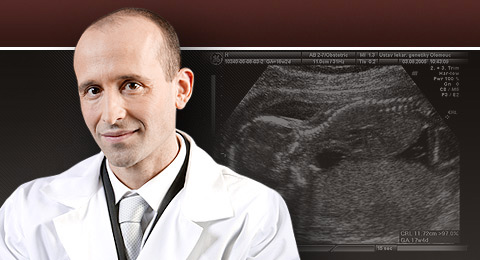Holusková I., Lubušký M., Studničková M., Procházka., Incidence erytrocytární aloimunizace u těhotných žen v olomouckém regionu. Čes. Gynek., 2013, 78 (1), s. 56-61. (The incidence of erythrocyte alloimmunization in pregnant women in olomouc region)
ABSTRACT
Objective: To determine the incidence of clinically significant anti-erythrocyte alloantibodies in pregnant women, which can cause severe hemolytic disease in the fetus and newborn.
Design: Retrospective-prospecitive clinical study.
Setting: Transfusion Department, University Hospital Olomouc, Department of Obstetrics and Gynecology, University Hospital Olomouc.
Subject and method: Between the years 2000–2011, a total of 45 435 pregnant women were examined at the Department of Transfusion Medicine at the University Hospital Olomouc. Screening for irregular anti-erythrocyte antibodies followed by identification of the alloantibody was performed in all women at the beginning of the pregnancy.
Results: Clinically significant anti-erythrocyte antibodies were diagnosed in 1.5% pregnant women (683/45435). The most common cause of maternal alloimmunization was antigen E with an incidence of 5.7‰ (258/45435), followed by antigen D 4.0‰ (181/45435), M 1.5‰ (70/45435), C 1.2‰ (54/45435), K 1.2‰ (55/45435), c 0.6‰ (26/45435), S 0.4‰ (20/45435), Jka 0.2‰ (9/45435), PP1pk (Tja) 0.1‰ (3/45435) and antigen Fya 0.0‰ (2/45435).
Conclusion: Despite performing prophylaxis for RhD alloimmunization by administering anti-D immunoglobulin to RhD negative women during pregnancy and after the birth of an RhD positive child, antigen RhD still represents the 2nd most frequent cause of maternal erythrocyte alloimmunization. The remaining clinically significant alloimmunizations are caused by non-D antigens of the Rh system, antigens of the Kell system, and rarely observed antigens of the MNS and Kidd blood systems.
KEYWORDS anti-erythrocyte alloantibodies – RhD – incidence


Contact
Professor Marek Lubusky, MD, PhD, MHA
THE FETAL MEDICINE CENTRE
Department of Obstetrics and Gynecology
Palacky University Olomouc, Faculty of Medicine and Dentistry
University Hospital Olomouc
Zdravotníků 248/7, 779 00 Olomouc, Czech Republic
Tel: +420 585 852 785
Mobil: +420 606 220 644
E-mail: marek@lubusky.com
Web: www.lubusky.com


